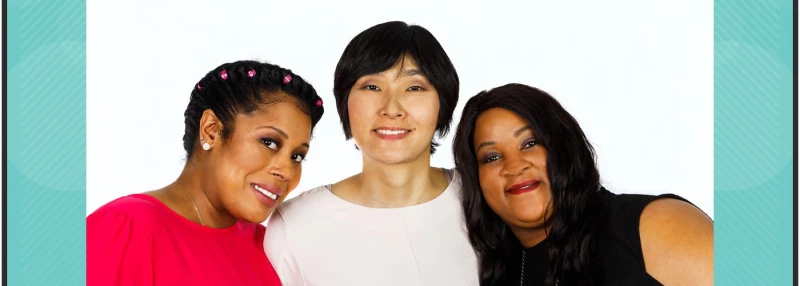I recently had the good fortune of having a breast mammogram and ultrasound on my right breast. This is the breast with my primary tumor, which my oncologist and I have been monitoring closely for nearly 20 months via PET and CT scan.
Over the last few months, I had noticed some skin changes. My oncologist wanted to investigate further what might be going on. So off I went to the breast center for imaging.
Download MBC Resources
Right away, the experience felt triggering. I hadn’t been seen for those tests since November 2017, the first day of my diagnosis. The last time I had an ultrasound and mammogram, I didn’t know I had cancer. I had planned to take my son to toddler music class. I had even quipped to the ultrasound tech, “Next time I have an ultrasound, I hope I get to see a baby!” Now we know that that path was never meant to be walked. It was never meant to exist for us.
As I came into the mammogram room, the tech immediately asked me why I was not having both breasts scanned. Before I could answer, she asked when my last mammogram was done. I was taken aback at her questions and answered that my last one was November 2017. She tsk tsk-ed me and informed me that I should be better about yearly screenings. I had waited too long in between mammograms.
Too Young for Mammograms
My jaw dropped open, and I tried to compose myself, to answer her robotic line of inquiry, but she pressed on.
“You’re so young, you don’t need to be getting mammograms yet. You’re not even 40. I’m going to talk to the doctor and clarify this.”
Without so much as a glance at my chart or a chance for me to answer her questions, she marched out of the room, returning a few moments later without a word; no apology, no concession, no acknowledgment of her error.
Still all business, the tech then asked me whether I was possibly pregnant and the date of my last period. My last menstrual period was on January 1, 2018 - over a year ago - and there was a clear and specific note in my chart stating that I had undergone a total hysterectomy in August 2018 as well. I should have been exempt from being asked if I was pregnant.
I held my tongue and indicated to her that the answer to that question was in my chart. Curtly, she reprimanded me. “These questions are all mandatory.” As we started the mammogram, she insisted that I wrap my abdomen in a lead apron. I asked why, and she replied that it was standard procedure for anyone of child-bearing age. I reminded her, with less patience than before, that I was menopausal and was no longer able to bear children.
Suffering in Silence
The scan went on in silence, neither of us interested in further engagement with the other. Any time I looked over, the tech pursed her lips and avoided my glance. Her refusal to apologize or even acknowledge her missteps were an additional slap in the face. I needed her concession spoken, as if it would soften the blow of all that I had experienced so far. I felt tears well up hot behind my eyes as I replayed the last few minutes over the top of my last experience having a mammogram.
I was not used to the routine, the typical protocols of breast screening. I felt so out of place in this foreign space, like a fraud, like I shouldn’t be there.
I should be back with the other metastatic folks, receiving PET scans, where all of the medical personnel are clearly versed on the contents of my chart. They know why I’m there, they know what questions to ask. They know what they’re looking at and what they’re looking for.
Here, in the breast center, of all places, I was an outlier in a field of healthy people, with healthy breasts, receiving screenings for a disease they don’t fully understand. Ordinarily skilled in the art of remaining still for imaging procedures, I squirmed at the discomfort of the mammogram machine. I dissociated. But instead of relieving me of the mental burden of my disease, my brain returned to the last time I had had my breast jammed into the machine. At that time, I still believed that I possessed two healthy breasts. It was the last time I would think that.
The tech finished the exam and, without another word, released me to the waiting area where I sat alongside the other women clad in only a poorly-fitting hospital gown. No one made eye contact. I was accustomed to being the youngest person in the room, but not necessarily both the youngest and sickest person.
A Safe Space to be Metastatic
I replayed the conversation with the tech over and over in my head, still in disbelief at her ignorance. Perhaps she was having a rough day. Or perhaps she was dissociating in her own way, challenged or triggered by a young woman with metastatic breast cancer in her scan room. Perhaps she maintained her “business-as-usual” demeanor because she did not have the energy to engage further, or could not allow herself into the space of that kind of sadness and difficulty.
I am a strong advocate for myself and am fortunate to have a spectacular team of doctors. They allow me to engage in critical discussion about almost every step of my care. This team values me as a person, and, in doing so, provides care for both me as a patient and me as an person. The irony of all of this is not lost on me. That at the breast center, of all places, I would experience such clinical dissonance. I will never know the tech’s reason for minimizing me, for refusing to recognize me as a person, rather than a protocol, a pair of breasts to be placed in the machine, positioned, and then dismissed.
Unfortunately, I do know that it isn’t the first time I encountered that sort of attitude, particularly in regards to my metastatic diagnosis. And I know that it will not be the last time I do, either.
 Emily Garnett is a former elder law and special needs attorney whose practice focused on adult guardianships, capacity issues, care management and public benefits. Today, she is the face of Beyond the Pink Ribbon, an advocacy and awareness platform where she documents her experience living with metastatic breast cancer. Emily also serves as the host of The Intersection of Cancer & Life podcast.
Emily Garnett is a former elder law and special needs attorney whose practice focused on adult guardianships, capacity issues, care management and public benefits. Today, she is the face of Beyond the Pink Ribbon, an advocacy and awareness platform where she documents her experience living with metastatic breast cancer. Emily also serves as the host of The Intersection of Cancer & Life podcast.




